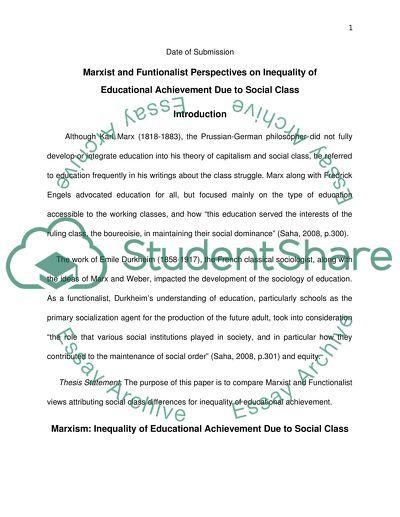Cite this document
(“Marxist and Funtionalist Perspectives on Inequality of Educational Essay”, n.d.)
Retrieved from https://studentshare.org/education/1469552-marxist-and-funtionalist-perspectives-on-inequality-of-educational-achievement-due-to-social-class
Retrieved from https://studentshare.org/education/1469552-marxist-and-funtionalist-perspectives-on-inequality-of-educational-achievement-due-to-social-class
(Marxist and Funtionalist Perspectives on Inequality of Educational Essay)
https://studentshare.org/education/1469552-marxist-and-funtionalist-perspectives-on-inequality-of-educational-achievement-due-to-social-class.
https://studentshare.org/education/1469552-marxist-and-funtionalist-perspectives-on-inequality-of-educational-achievement-due-to-social-class.
“Marxist and Funtionalist Perspectives on Inequality of Educational Essay”, n.d. https://studentshare.org/education/1469552-marxist-and-funtionalist-perspectives-on-inequality-of-educational-achievement-due-to-social-class.


